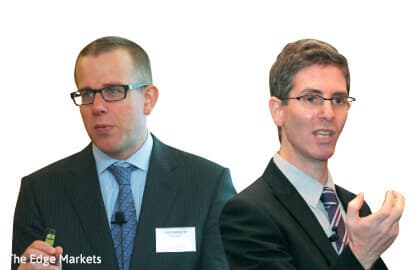
Financial markets are embracing both extreme pessimism and extreme optimism. This is clearly a product of prioritising liquidity over rationality and fundamentals, according to international financial services provider Rabobank.
Ultra-low rates have supported the huge rally seen in bonds, the bank says in the summary of its Financial Markets Outlook 2017 report. At the same time, global equities are soaring in developed and emerging markets.
In Organisation for Economic Cooperation and Development (OECD) countries, house prices are recovering despite the poor fundamentals. Gold prices have been rallying as well.
The decades of prevailing economic consensus of deregulation, “financialisation”, privatisation, fiscal austerity and globalisation laid the foundations for the 2008 global financial crisis. The world’s economy has been stuck in a vicious high-debt, low-investment cycle since.
“Moreover, central banks’ unconventional monetary policy in response to structural economic problems since 2008 has made matters worse,” says Jan Lambregts, managing director and global head of financial markets research at Rabobank, at the presentation of the Financial Markets Outlook 2017 in Kuala Lumpur recently.
He says a few events that were unusual in the past have now become the norm. Among them are the US$13.4 trillion of bonds that are trading at negative yields; stagnant private sector investment, even in China; and the UK’s vote against globalisation in the European Union referendum.
“Some other unusual events that are usual now include massive foreign exchange swings in emerging and developed markets, small and medium enterprises struggling to obtain financing, and global companies now being able to borrow at negative rates,” says Lambregts.
Yet, more potentially systemic challenges are emerging, says
Michael Every, Rabobank director and Asia-Pacific head of financial markets research. He cites the example of Bank of Japan (BoJ) facing a limit to its unusual monetary policy.
As a result, the central bank will be faced with two choices: admit that there is nothing more it can do, or its fiscal policy will need to become more expansionary despite a public debt-to-GDP ratio of nearly 250%. Other central banks may follow BoJ’s lead, which could potentially see them taking an even larger hands-on role in “economic (mis)management”.
Meanwhile, Every says OECD governments are likely to shift towards expansionary fiscal policies. “This would be an attempt to slow a backlash against the lopsided outcomes of the global economic consensus.”
However, a series of crucial elections over the next 12 months could see populists win, he adds.
“The [global] market has seen lower bond yields and higher volatility in equities when reacting to anti-globalisation shocks so far. If Donald Trump gets elected, the same pattern of response may occur. At this point, the outcome will be either crazy new money rolling into the global economy or we could see some kind of people’s revolution and backlash,” says Every.
He adds that multiple populist victories coupled with policy shifts towards fiscal expansion and protectionism may provide a solution to the structural problem taking place globally. The only likely way out from what the world is trapped in now is the rolling back of globalisation, although it could create new challenges, says Every.
Save by subscribing to us for your print and/or digital copy.
P/S: The Edge is also available on Apple's AppStore and Androids' Google Play.